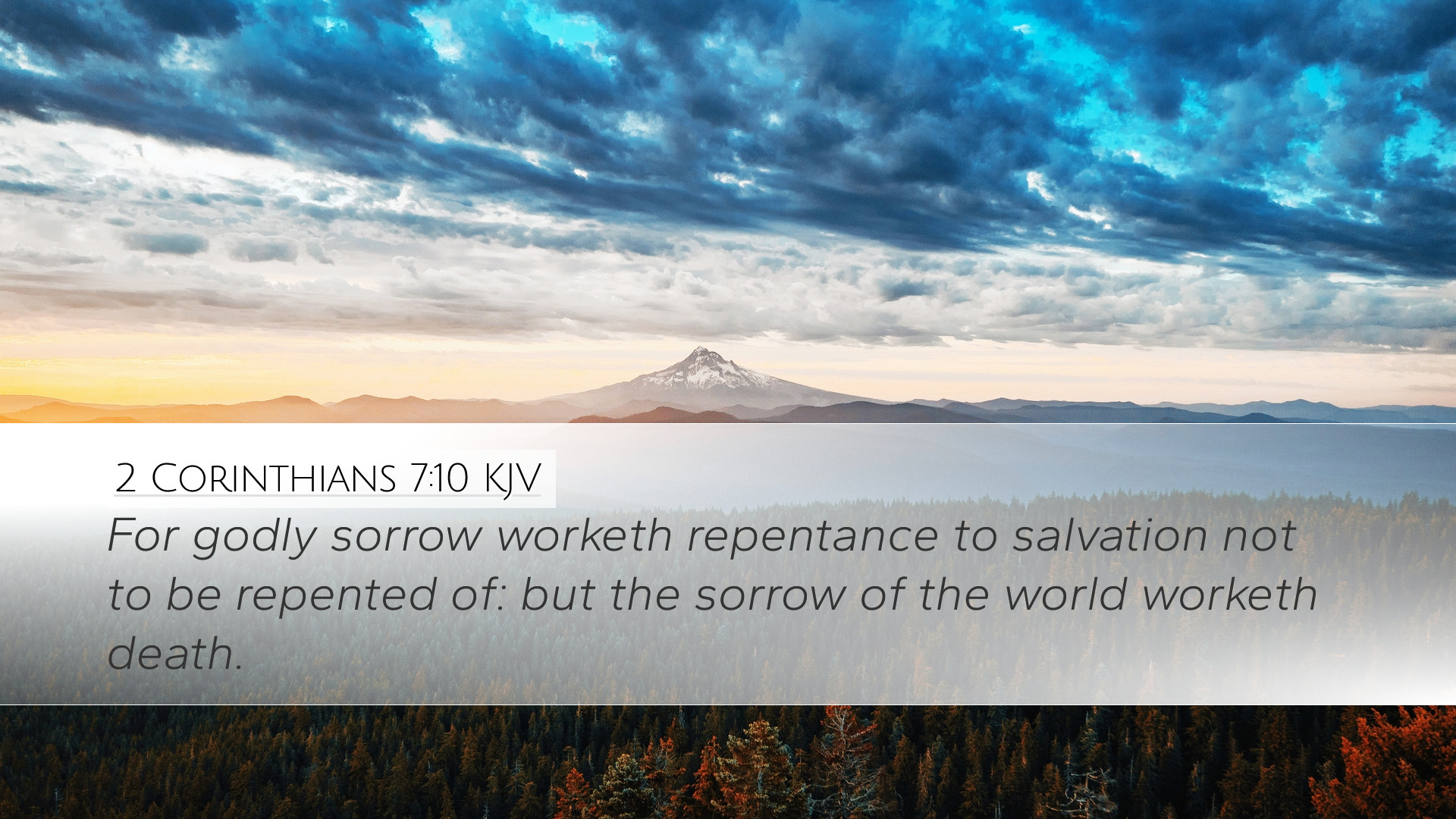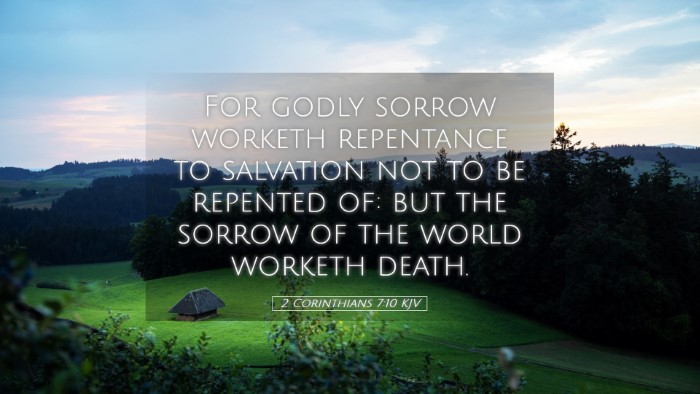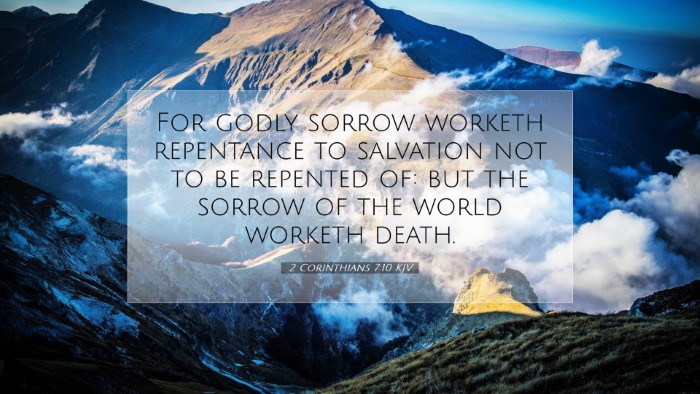Old Testament
Genesis Exodus Leviticus Numbers Deuteronomy Joshua Judges Ruth 1 Samuel 2 Samuel 1 Kings 2 Kings 1 Chronicles 2 Chronicles Ezra Nehemiah Esther Job Psalms Proverbs Ecclesiastes Song of Solomon Isaiah Jeremiah Lamentations Ezekiel Daniel Hosea Joel Amos Obadiah Jonah Micah Nahum Habakkuk Zephaniah Haggai Zechariah MalachiVerse
2 Corinthians 7:1 2 Corinthians 7:2 2 Corinthians 7:3 2 Corinthians 7:4 2 Corinthians 7:5 2 Corinthians 7:6 2 Corinthians 7:7 2 Corinthians 7:8 2 Corinthians 7:9 2 Corinthians 7:10 2 Corinthians 7:11 2 Corinthians 7:12 2 Corinthians 7:13 2 Corinthians 7:14 2 Corinthians 7:15 2 Corinthians 7:16

